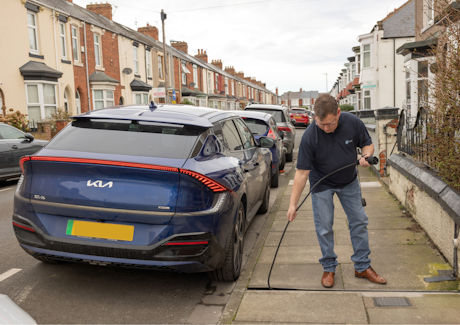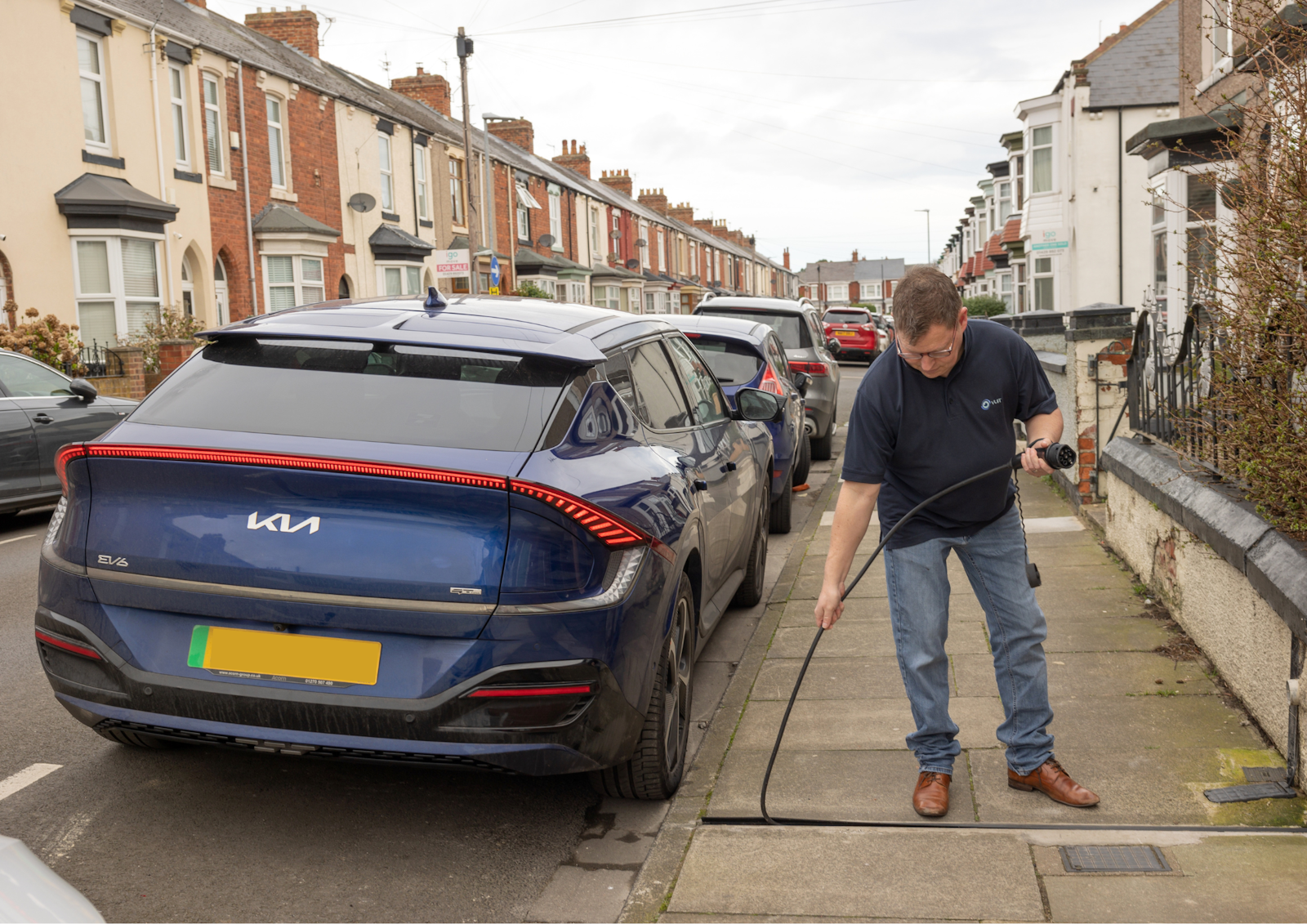How to charge an electric car with no driveway
July 18, 2025 by John Rawlings

More UK councils are rolling out smart in-pavement cable channels, making it easier and more convenient for people with on-street parking to charge their electric cars at home – no driveway needed. That means no more detours to public charging points or waiting in queues; just plug in outside your front door.
Home charging is far cheaper. Off-peak electricity is taxed at just 5%, compared to 20% VAT on public chargers. The average EV owner spends about £680 a year charging at home – versus £1,820 using public networks and around £1,470 for petrol drivers, according to Zap Map.
Cross- or in-pavement charging lets you run an EV cable safely across the pavement without it becoming a trip hazard. A slim channel is cut into the pavement and fitted with a cover or flap that sits flush with the surface. To install it, a small section of pavement is dug up, the channel goes in, and then it’s all sealed up so it blends in when not in use.
Remember, you can buy a brand new or used car right here on Carwow. And you can sell your car, too. We’re here to help you through every step of your car-changing journey.

One of the leading options is Kerbo Charge, whose in-pavement cable cover is made from thermoplastic (so it’s both durable and less tempting for metal thieves). It sits flush with the pavement and has a self-closing lid, so it’s safe to walk over. You just pop your charging cable into the channel and take it out when you’re done – simple.
Installation costs around £999, including council approval, and it pays for itself in under a year if you’re switching from public charging. Renters and flat owners might also qualify for a £350 government grant to help with the cost of a charge point.

Hartlepool council is the latest local authority to trial the in-pavement option. Kieran Bostock, Hartlepool Borough Council’s Assistant Director – Neighbourhood Services, said: “This trial aims to make it easier and less expensive for residents who don’t have off-street parking to charge electric vehicles (EVs). Anything which encourages the take-up of EVs is to be welcomed, and this initiative reflects the Council’s commitment to tackle climate change by reducing its impact on the environment whilst also supporting local communities to cut their emissions.”

Another solution provider is Gul-e, which offers a pavement cable channel featuring solid chequerboard plates and brush seals to keep the recess free from dirt and debris. Like Kerbo Charge and other similar solutions, you’ll need permission from your local authority to have one installed.
A single Gul-e unit typically costs £499 (excluding VAT), and installation is available. Final pricing is confirmed after a consultation and site survey. Whichever company you go for should have a similar process, so be sure to shop around to get the best all-in price in your local area.
The government recently pledged £25m to support these kinds of on-street charging setups. And London Councils have now published guidance to help boroughs roll it out more widely. Places such as Enfield and Bromley are already on board, while other parts of the UK such as Hartlepool, Stirling, Suffolk, and Devon have their own schemes in place.
Car change? Carwow!
Looking for a new set of wheels? With Carwow you can sell your car quickly and for a fair price – as well as find great offers on your next one. Whether you’re looking to buy a car brand new, are after something used or you want to explore car leasing options, Carwow is your one stop shop for new car deals.
Click here to follow us on WhatsApp, where you can keep up-to-date with all the latest news, reviews, advice guides and videos.















